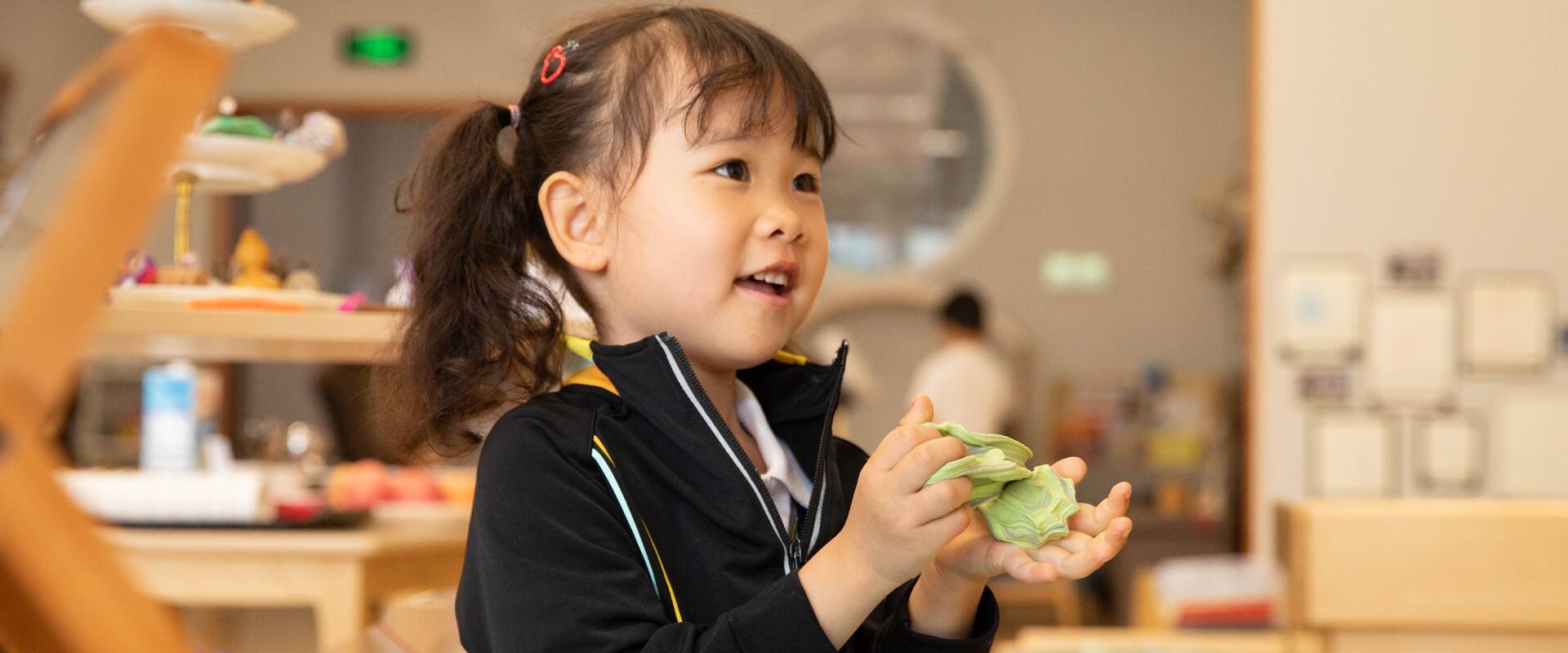
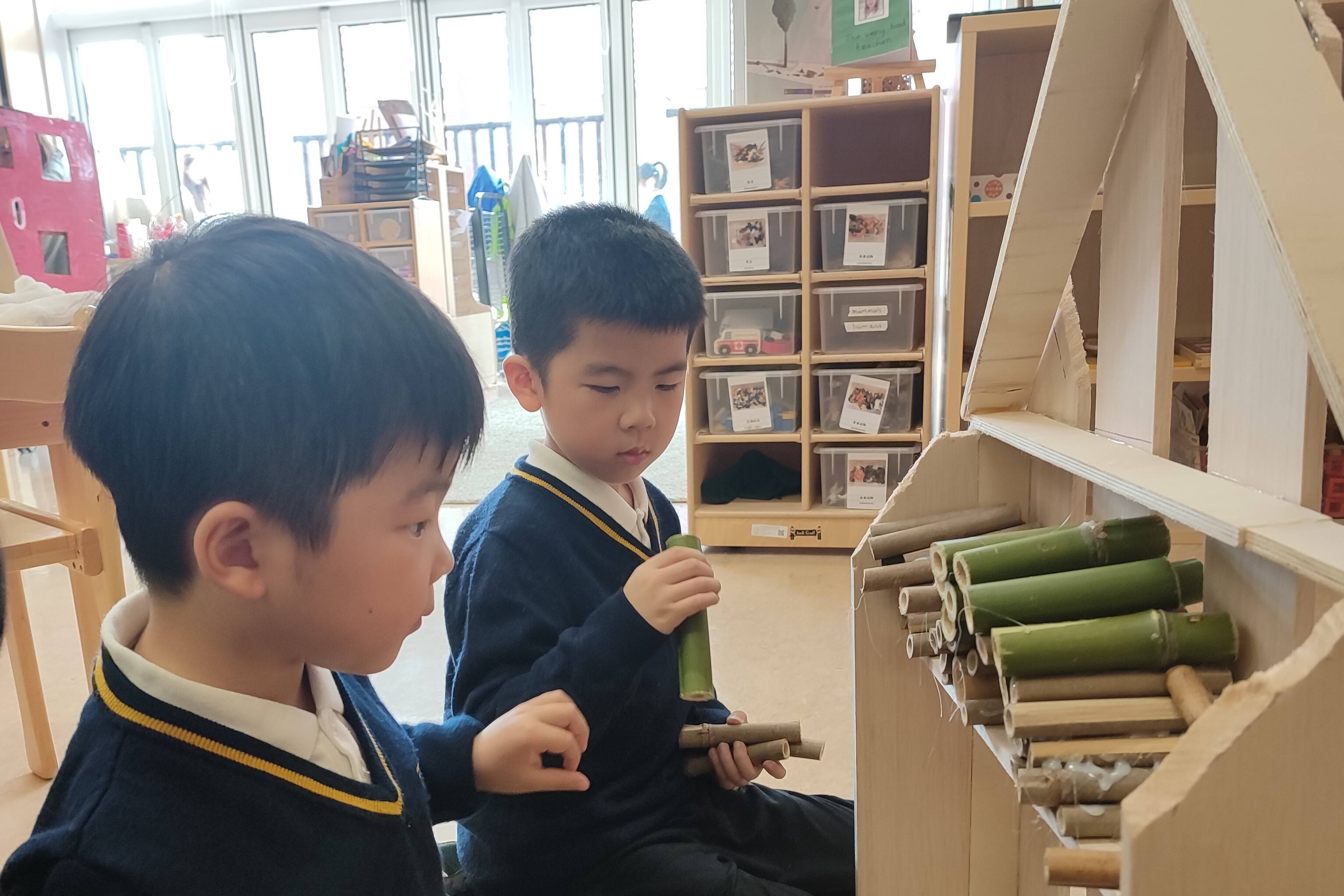
A few years ago, a video featuring a nursery child called Feng Yuhan doing carpentry went viral with over 12 million views on Chinese social media. Yuhan learned basic carpentry skills from her grandfather, a professional carpenter. The popularity of the video reflected how Chinese parents desperately want to improve their children’s hands-on experience.
Carpentry space has become a common setting to improve practical skills at nurseries in many developed countries. Here, children can concentrate on making tools, wooden boats, and shelters for class animals with wooden drills, hammers, hacksaws, boards and sticks. With the correct guidance, carpentry tools are no longer “dangerous things not to be held by children” in the eyes of Chinese parents but items for a child to be innovative and make a difference.
Zhu Diwen, a Chinese American scientist and Nobel laureate in physics, once commented, “Hands-on work is an important concept. Chinese students are good at learning from books, but their hands-on ability is less impressive and less innovative.” By doing, children feel the world in their hands, and their creativity and imagination are unleashed. As a result, they can think and innovate independently and grow into people with strong practical abilities with increasing confidence to make a difference.
At Huili Nursery Hangzhou, there is also a Woodwork Station. It is a space where the children become handy carpenters - learn attentively, operate with caution, and create freely. Their hands-on experience improves dramatically through practice. Let us follow the lead of Kelly Ashby, Assistant Head of Early Years, and take a journey into the Woodwork Station at Huili nursery to find out more.

It is not unusual to walk up the stairs to the second floor of Huili Nursery Hangzhou and hear the sound of tap, tap, tapping with hammers, the smell of wood sawing and the sight of children, and adults alike, with high levels of involvement in our Woodwork Station. This area is an integral part of the facilities we provide for our children and is a key part of their nursery experience. The Woodwork Station allows children to observe, learn and understand processes and key skills transferable to essential life skills. At HNH, giving children the freedom to make their own choices, think creatively and develop their problem-solving skills is a valuable investment in their development.
All-natural material – flexible and sustainable
The materials in any woodwork or carpentry area are natural by default. They are flexible, open-ended, aesthetic, unique and warm. Children can relate to these much more than synthetic, manmade materials, such as plastic, which are much colder in comparison. Using natural materials connects children’s hands, hearts and minds, organically supporting high levels of wellbeing. You will see happy, competent children who feel safe, secure and very busy developing a passion for lifelong learning. Another benefit of children interacting with natural materials is that we begin to sow the seeds of sustainability. Children create the resources they need to support their learning from scratch rather than buying new, potentially synthetic resources that will eventually end up in a landfill.
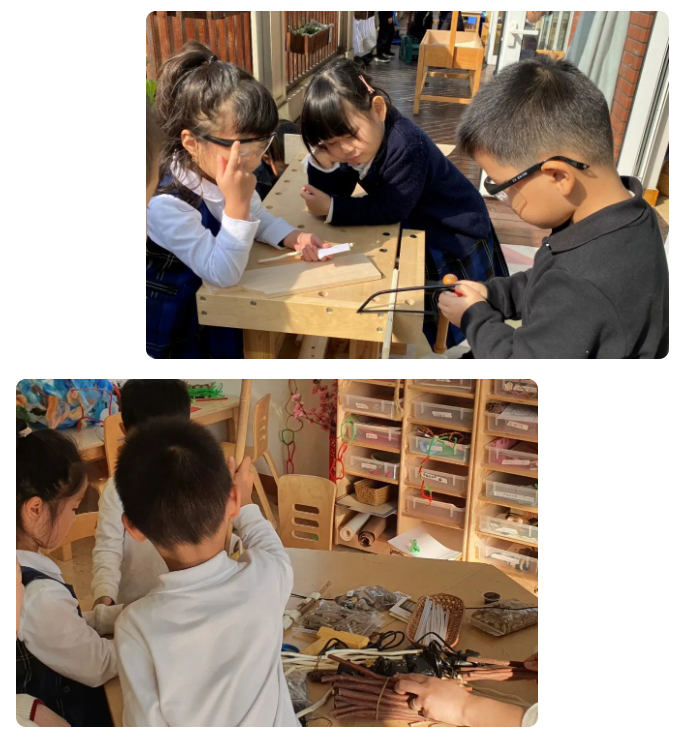
It facilitates Project Based Learning (PBL) and suits various learning styles.
Woodwork encompasses all aspects of learning and development, connecting our curriculum through emergent interests and class projects. Knowledge is extended, due to the nature of the ongoing projects, fostering in-depth investigations. One of the many reasons we deliver through enquiry is that children with differing learning styles can all be engaged in their learning; they can lead their knowledge in ways that work for them. Some children will learn by doing. Therefore, facilities such as a Woodwork Station will ensure that children of differing learning styles are engaged, with their individual needs met too. Woodwork can unlock potential barriers to learning for many children. Project Based Learning (PBL) is a fundamental part of how we deliver the curriculum in the nursery, with each class following their collective interests, enquiries and wonderings. Our woodwork station is a significant channel that facilitates our PBL.
“When children discuss and plan a project, their social skills develop. They learn the value of sharing ideas and learning from others.”– Pete Moorhouse, Woodwork in the Early Years
Safety first
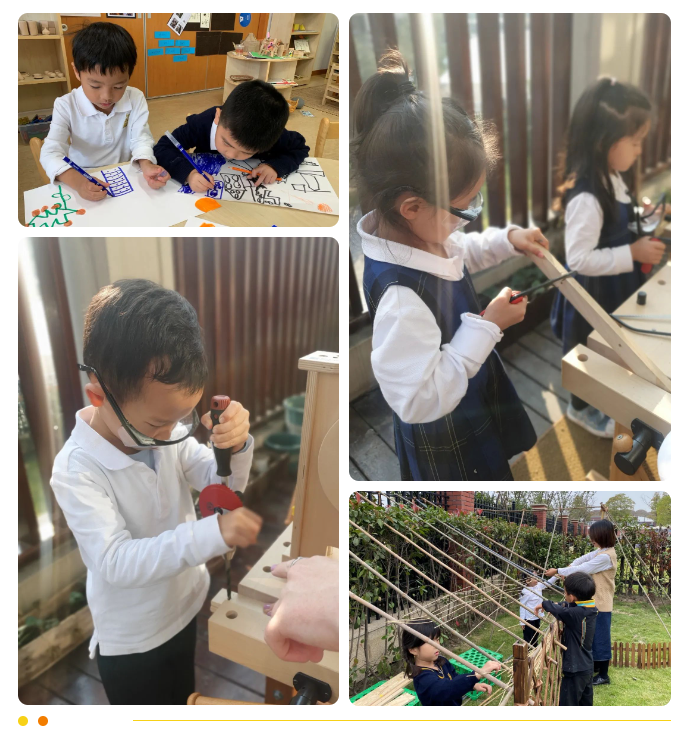
The first and most crucial step of children using the Woodwork Station is that children become familiar with the tools and know how to use them safely. What is a hammer? Why do we use this? How can we use this safely? Children are supervised, and the tools and materials are introduced correctly, ensuring that woodwork is a low-risk activity. Once they know these fundamental skills, children are given the space to persevere and solve their challenges. We then see that their sense of self, pride and self-esteem grow and flourish, which is an absolute joy to observe!
Young expert carpenters at Huili
The children in EY4 are the experts in woodwork in the nursery. Those with us for several years have developed their skills and often use their knowledge to teach their peers. They consolidate their learning and develop fundamental Huili values, such as Responsibility and Respect. For example, last year, our EY4B children began a Construction project that started with children building homes in class for animals. The class then placed their votes to make the ‘house’ that interested them the most; this included designing and constructing an outdoor tent, a home for Huili Bear and a bug hotel. One of the key discussions during their project was about making mistakes, “mistakes can help us to learn.” They looked at all the mistakes they made whilst constructing in their three teams and how these errors were perfect opportunities to re-design their structures so they were even stronger. The children were offered the chance to face the failures together and develop an understanding of the world and the Courage to keep trying and exploring.
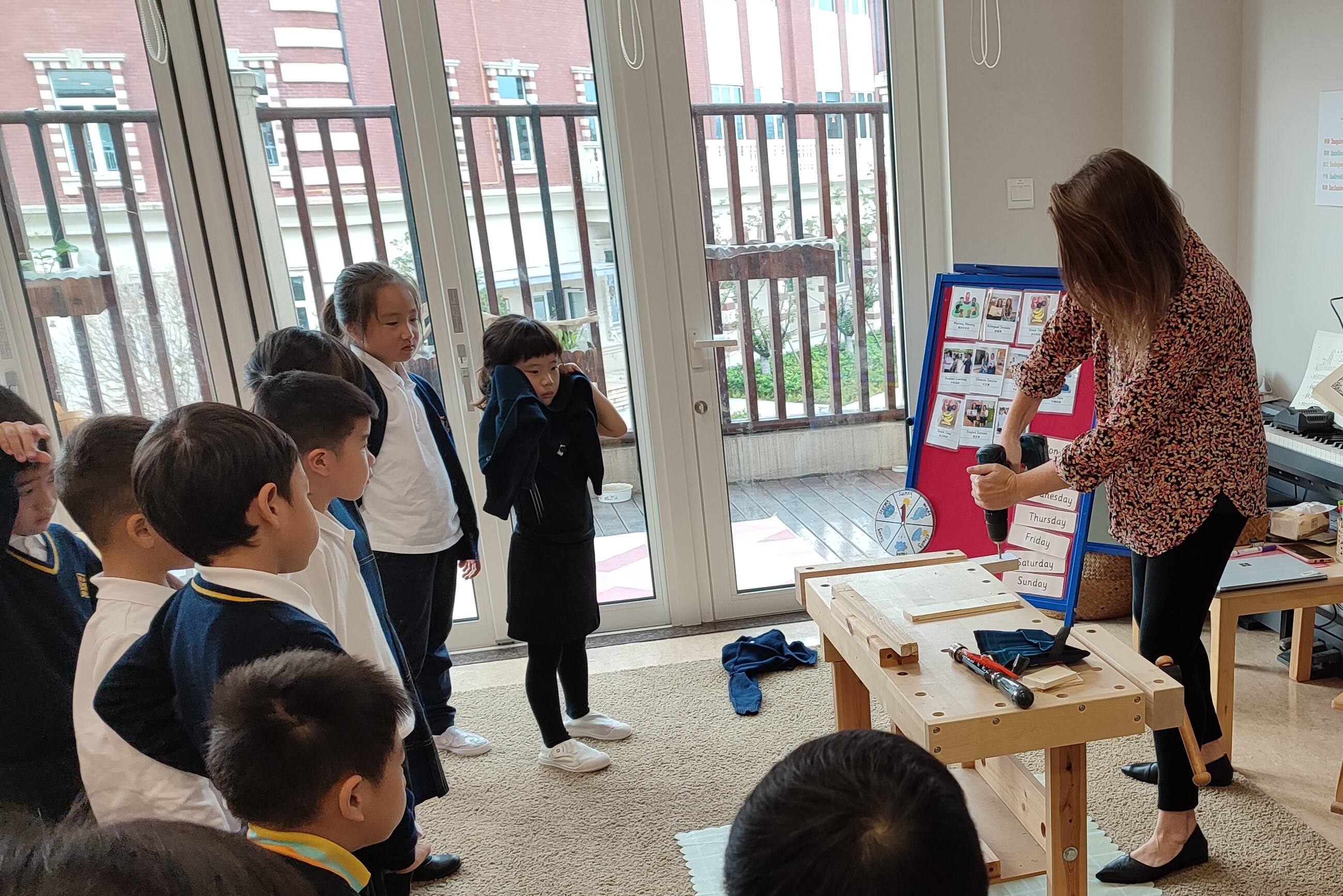
Class wood station
Our current EY4A class has invited expert parents to teach the children additional woodwork skills. They worked together to create a class Woodwork station on their balcony and are currently in the ‘planning’ phase of their project. We can’t wait to see what direction their woodwork journey will take.
At Huili, we follow a proud tradition and cultivate children for the future. The carefully designed woodwork station offers the children at the nursery an opportunity to increase their understanding of the world and learn necessary safety rules that promote their physical, emotional and social development. As a result, we are confident that our nursery children will grow into well-rounded individuals with strong values and the skills to thrive in an ever-changing world.